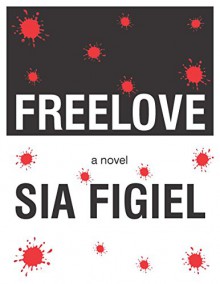"In Oceania's literary history when the cultural, artistic renaissance, with its genesis in independence movements of 1960s and 70's, was coming to gradual stillness, in midst of political turmoil and authoritarian rule, an audacious new talent blazed into the writing scene: Sia Figiel who gave...
show more
"In Oceania's literary history when the cultural, artistic renaissance, with its genesis in independence movements of 1960s and 70's, was coming to gradual stillness, in midst of political turmoil and authoritarian rule, an audacious new talent blazed into the writing scene: Sia Figiel who gave us the prize-winning novel, Where We Once Belonged (1997). She was not only an ingenious prose writer, but also a seductive poet and an astounding performer, exactly the sort of free spirit required to rekindle much needed hype around Pacific writing. There is similar buzz once again; her new novel Freelove (2015) is building an epiphanic connection across borders with island writers and friends of Pacific writing, setting up the conditions of its production and immediate reception. This extra-narrative is a satellite event around the novel in which we are on wings of imagination voyaging with the seventeen and half year old Star Trek fanatic from Nuuolemanusa, Western Samoa, exploring new empires of life, love, and language, where no one has been before. The locus of the novel is 'the colonising moment', poetic conflation of time and space, history and memory, in which the protagonist, Sia, raised both extra-terrestrially and with the subaltern kuaback folks, is in a red pick-up truck with her teacher of science, and brother who is her lover. But she cannot be kept captive in relationship, and thus drifts in many directions beyond taboos, constraints of 'the moody language', history and gender, riding stream of thought and consciousness. The quest is mostly inner directed towards many riddles of love. Love is the great integer that makes the ocean flow, the visionary energy that reconciles day and night, meetings and separations, and yearning for each other. That love is for the bravest and wisest and resides in the innermost resources of the self and in the moral order of the galaxy. It reveals to the sagacious voyager 'we triumph conquering ourselves, not others'. The instrument of conquest is language that, in the novel, welds together metaphors of scientific spirit and poetic beauty, fa'asamoa and newness, fusing height and depth, serious and hoaxing game, exhaling deluge of love, and ultimately engendering an incorrigible optimism."--Professor Subramani, Fiji National University"Sia Figel pushes the boundaries of conventional Pacific storytelling in an explicit tale of love and lust. FREELOVE is a love story between Sia, a Samoan teenager at the cusp of adolescence and womanhood, and Ioage, a teacher and son of the village Faifeau (Pastor). This seemingly controversial tale of a forbidden love between teacher and student, symbolic 'brother' and 'sister,' pulls back the layers of social and cultural conceptions of respectability, exposing at its core the basic human experience of first encounters of intimacy. Regardless of predisposition, it is in the confrontation of sexual encounters that the reader is given insight into aspects of cultural interpretations and practices that are artfully woven into the storyline. The storying of Sia's experience is authentic, raw and haunting. FREELOVE is a critical and insightful narrative that whets the appetite. The residue that remains speaks of sadness and dislocation, leaving the reader with questions about how the story really ends."--Dr. Cresantia Koya Vaka'uta, Poet, Pacific Activist and Intellectual at the University of the South Pacific
show less

